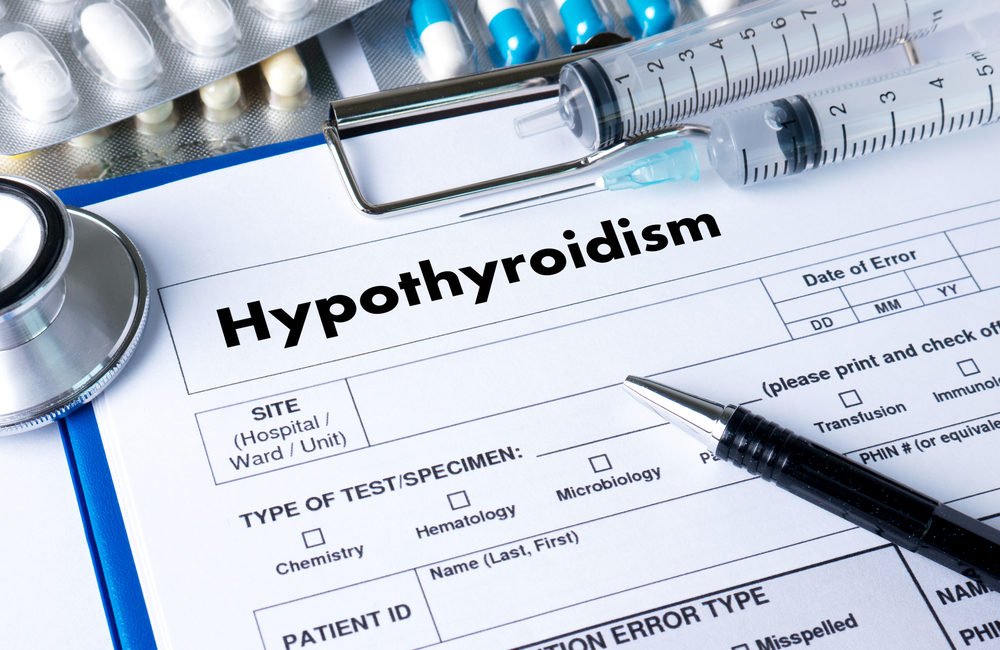The U.S. Food and Drug Administration (FDA) has announced a medication recall of certain hypothyroidism medications. This is just one of several recent FDA recalls relating to sub potency of the medication. That means that patients taking the medication may not get the full benefit of the drug or the recommended treatment amount.
Hypothyroidism Medication Recall Information
According to the FDA Company Announcement, this hypothyroidism medication recall includes two products made by RLC Labs, Inc. Those products are:
- Nature-Throid
- WP Thyroid
The products are being recalled due to samples showing that they are sub potent. The products may have only 87% of the indicated amount of Liothyronine or Levothyroxine – the primary ingredients used in the drugs. The recall includes a total of 483 lots of medication. Consumers can identify the products using the RLC Labs recall sheet.
The recall sheet includes the product name, lot number and expiration date. RLC Labs is also arranging for return of all of the recalled products.
Anyone who takes Nature-Throid or WP Thyroid should talk to their doctor about their health and continuing the medication. RLC Labs says they have not received any adverse events reports at this time. That does not mean that patients are not at risk.
Consumers who have questions or concerns about this medication recall can contact RLC Labs directly by calling 1-877-797-7997. Adverse events can be reported to the FDA using the MedWatch Adverse Event Reporting program. Reporting adverse events to the FDA is important so that they can track how a product recall is impacting consumers. The data provided by consumers also helps the FDA monitor products and ensure safety.
Dangers of Sub Potent Hypothyroid Medication
Hypothyroidism, or underactive thyroid, is a serious medical condition that requires management. Without treatment, hypothyroidism can cause serious problems in elderly patients and pregnant women. Elderly patients may experience cardiac pain, arrhythmia or palpitations. Pregnant women may experience birth injuries, birth defects, infant hypothyroidism and miscarriage.
Nature-Throid and WP Thyroid are drugs used to treat hypothyroidism. Sub potent varieties of the medication may cause patients to not get the benefits of treatment. Furthermore, patients may experience additional side effects, such as:
- Fatigue
- Dry skin
- Constipation
- Puffy face
- Hair loss
- Slow heart rate
- Sensitivity to cold
- Swelling of the thyroid
- Unexplained weight gain
Information about Hypothyroidism
Hypothyroidism is a serious medical condition on its own. Add to that additional side effects from a sub potent medication, and patients can experience a very difficult time. Hypothyroidism means that the thyroid gland does not produce enough important hormones. There are several factors that may “cause” hypothyroidism. Most often, hypothyroidism is linked to:
- Autoimmune disease
- Thyroid surgery
- Radiation therapy
- Congenital causes
- Pituitary disorder
- Iodine deficiency
- Medications
A deficiency in thyroid hormones can cause progressive symptoms that begin with something as simple as fatigue or weight gain. Over time, the symptoms of hypothyroidism can develop into more obvious problems. Some of the more serious symptoms include:
- High cholesterol
- Muscle aches
- Joint pain, tenderness and stiffness
- Joint swelling
- Heavy or irregular menstrual periods
- Depression
- Impaired memory
- Enlarged thyroid gland
People who experience these symptoms without an alternative explanation should talk to their doctor about thyroid health. There are possible complications if hypothyroidism is not properly diagnosed and treated. These complications include:
- Goiter
- Heart problems
- Mental health issues
- Peripheral neuropathy
- Myxedema (a rare life-threatening complication caused by long-term undiagnosed and untreated hypothyroidism).
- Infertility
Fortunately, hypothyroidism is easy to diagnose. All it takes is a blood test. If a patient’s thyroid hormone levels are low, they will likely be prescribed medication to regulate hormone levels. Thyroxin, liothyronine and levothyroxine are among the drugs most often prescribed to treat hypothyroidism symptoms. Liothyronine and levothyroxine are two of the ingredients listed in the medication recall discussed above.
Sources:
- https://www.fda.gov/safety/recalls-market-withdrawals-safety-alerts/rlc-labs-inc-issues-voluntary-nationwide-recall-all-lots-nature-throidr-and-wp-thyroidr-current
- https://www.fda.gov/media/141862/download
- https://www.birthinjuryguide.org/birth-injury/
- https://www.fda.gov/safety/medwatch-fda-safety-information-and-adverse-event-reporting-program/reporting-serious-problems-fda
- https://www.mayoclinic.org/diseases-conditions/hypothyroidism/symptoms-causes/syc-20350284
